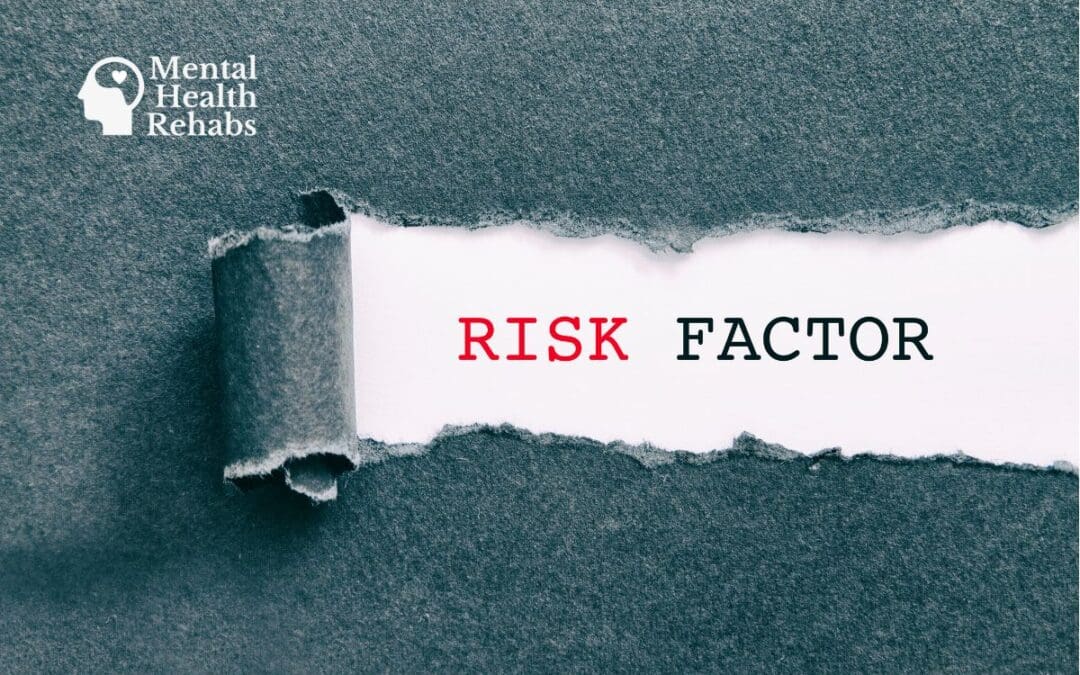Odds are, you know someone who suffers from anxiety. It’s the most common type of mental disorder in America, affecting nearly one in five of the U.S. adult population. Why is this condition so incredibly prevalent? While science has yet to pinpoint the exact cause of anxiety, its pervasiveness can be partially explained by the risk factors for anxiety. Some of these factors are external, a result of our environment, while other factors are internal, a ticking time bomb triggered once certain conditions are met.
The 7 Most Common Risk Factors for Anxiety
Anxiety is essentially the misfiring of the body’s fight-or-flight response; when the response is triggered unnecessarily or when the body is unable to come down from high alert and return to stasis once the perceived threat has passed. It’s easy to see how many factors in today’s increasingly demanding and fast-paced society can affect anxiety on both ends.
Stress
Unsurprisingly, stress, the silent killer, is also the most common cause of anxiety. Stress can create a feedback loop: making a person more prone to becoming agitated and also making it more difficult for a person to calm down. This harmful cycle can result in a perpetual state of tension or chronic stress.
In addition to priming the body and brain to overreact to stimuli, chronic stress can lead to high levels of cortisol in the body which can interfere with brain chemistry. When cortisol and other stress-related hormones are released, levels of feel-good neurotransmitters dopamine and serotonin decrease in direct response.
Too-low levels of those neurotransmitters have a direct correlation with causing mental illnesses like anxiety. Plus, the diminished levels of the chemicals that naturally boost our mood can leave us even more vulnerable to stressors.
Trauma
Similar to the effects of stress, trauma is a majorly stressful event that’s so intense it can have long-term or even permanent effects on the brain’s chemistry and function. As such, anxiety is a common side effect of experiencing traumatic events like:
- Child abuse
- Domestic abuse
- Natural disasters
- Physical or sexual assault
- Serious health problems
- Torture
- Unexpected death of a loved one
- War (both combat or experiencing it as a civilian)
Substance abuse
Anxiety’s onset can also be triggered by the use of both pharmaceutical medications and illicit street drugs. This type of anxiety disorder is known as substance-induced anxiety disorder and is characterized by feelings of nervousness, paranoia, and restlessness.
Substances can do this two-fold. Using drugs can disrupt levels of serotonin and dopamine, resulting in decreased natural production which, as previously mentioned, can leave an individual more prone to stress. However, anxiety can also be a symptom of drug withdrawal.
The drugs most likely to cause anxiety are:
- Alcohol
- Caffeine
- Cannabis
- Hallucinogens
- Inhalants
- Stimulants
Cardiovascular conditions
Anxiety is as much a physical ailment as much as it is a psychological one. Heart problems like arrhythmia or thyroid issues replicate those physical symptoms of anxiety and can also exacerbate those directly caused by anxiety. Individuals with these conditions are 3 times more likely to develop anxiety. This is a correlation that is not yet fully understood and the precise overlap has not been identified.
Lifestyle & Diet
Everyday decisions and behaviors like nutrition, physical activity, smoking, and caffeine intake can affect the likelihood of developing anxiety. An unhealthy lifestyle can lead to things like poor sleep, mood regulation, or dehydration, potentially making us more irritable, prone to overeating (or eating overly salty or sugary foods), and skipping the gym.
While lifestyle may not directly lead to anxiety, the small decisions and behaviors that make up our day to day can throw the body off balance and result in a domino effect that heightens the risk of anxiety.
Gender
Women consistently have higher rates of anxiety disorder compared to men–with one in three women being diagnosed compared to only one in five men. It’s not entirely understood why; some studies suggest that it could be due to the natural differences in brain chemistry and hormones; hormonal change of menopause, or that women are more likely to face abuse than men.
In addition to having a greater likelihood of being diagnosed with anxiety, research has shown that women also appear to have more severe symptoms and also tend to have multiple types of anxiety disorders.
Genetics
At the root of every mental illness are genetics. The risk of anxiety is heightened if someone in your immediate family has the same condition. However, genetics can also play an indirect role by affecting specific genes that make a person more likely to experience those risk factors of anxiety, like stress, substance abuse, or even poor diet.
Think you may be suffering from anxiety? Talk to a mental health therapist near you.

